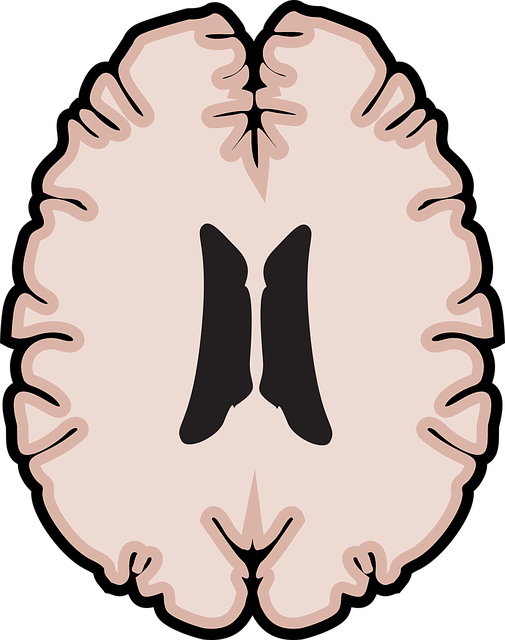Understanding mental health policies is vital for improving access to care and resources, especially for complex conditions like dissociative disorders in areas like Highlands Ranch, Colorado. Gaps exist in specialized therapy, awareness, and policy integration, leading to challenges such as misdiagnosis and stigma. Advocates aim to address these issues through improved policies, community programs, and self-care empowerment, enhancing care equity and quality of life for those seeking Highlands Ranch Dissociative Disorder Therapy. A nuanced approach focusing on data-driven strategies and evidence-based practices is crucial to tackling intricate mental health challenges in disadvantaged communities.
Mental health policy analysis and advocacy are vital components of fostering equitable access to quality care. This comprehensive guide explores key aspects, from understanding foundational policies to addressing specific challenges like dissociative disorders in Highlands Ranch. We delve into policy gaps hindering care and strategic analysis methods.
Additionally, we highlight effective advocacy strategies to drive change, ensuring disadvantaged communities receive the therapy they deserve. Discover actionable insights for a mental health landscape where access is no longer a barrier.
- Understanding Mental Health Policies: A Foundation for Advocacy
- The Impact of Dissociative Disorders: Unseen Struggles in Highlands Ranch
- Policy Gaps and Barriers to Care in Mental Health Treatment
- Strategies for Effective Mental Health Policy Analysis
- Advocating for Change: Ensuring Access to Therapy in Disadvantaged Communities
Understanding Mental Health Policies: A Foundation for Advocacy

Understanding mental health policies is a cornerstone for advocacy and driving positive change in an individual’s well-being, especially for those seeking treatment for conditions like dissociative disorder therapy in Highlands Ranch. These policies shape access to care, resources, and support systems, ultimately influencing the quality of life for people struggling with their mental health. By delving into policy structures, advocates can identify gaps and areas for improvement.
For instance, developing mental wellness coaching programs and promoting self-care routine development are strategies that gain traction through policy advocacy. Enhancing emotional intelligence and access to specialized therapies, such as those offered in Highlands Ranch, become more feasible when policies evolve to prioritize mental health on par with physical health. This comprehensive approach ensures that individuals receive holistic support tailored to their unique needs.
The Impact of Dissociative Disorders: Unseen Struggles in Highlands Ranch

In Highlands Ranch, the unseen struggles of individuals with dissociative disorders often go unrecognized. This complex mental health condition, characterized by a disconnection from reality and memory gaps, can profoundly impact daily life. Those affected may experience severe emotional distress, identity confusion, and difficulty functioning in various settings, including school, work, and social environments. The impact extends beyond the individual, affecting families and communities as they grapple with managing symptoms and ensuring support for those diagnosed.
Highlands Ranch, known for its vibrant community, lacks specialized resources for dissociative disorder therapy. This gap in mental health services exacerbates the challenges faced by affected individuals who require specialized care and understanding. However, initiatives like public awareness campaigns, trauma support services, and stress management workshops can play a pivotal role in raising awareness, destigmatizing mental health issues, and fostering an environment conducive to recovery. By engaging the community in these efforts, Highlands Ranch can move towards better supporting residents dealing with dissociative disorders.
Policy Gaps and Barriers to Care in Mental Health Treatment

Despite advancements in mental health care, significant policy gaps and barriers remain, especially for individuals dealing with complex conditions like Dissociative Disorder. Highlands Ranch, Colorado, a bustling community, illustrates these challenges. Access to specialized Dissociative Disorder Therapy is limited, often requiring patients to travel long distances or wait extensive periods for appropriate treatment. This accessibility issue is a major concern, hindering timely interventions and exacerbating the stigma surrounding mental health issues.
Moreover, mental health awareness remains subdued in many areas, leading to underreporting and misdiagnosis. Self-awareness exercises and emotional regulation strategies can play a crucial role in early detection, but only if they are integrated into community outreach programs. By addressing these policy shortcomings, advocates aim to ensure equitable access to care, enhance mental health awareness, and ultimately improve the quality of life for those affected by dissociative disorders and other mental health challenges.
Strategies for Effective Mental Health Policy Analysis

Mental health policy analysis is a comprehensive process that requires a multi-faceted approach to effectively address complex issues and develop robust strategies. One key strategy involves understanding the unique challenges faced by vulnerable populations, such as individuals with dissociative disorders, like those seeking Highlands Ranch Dissociative Disorder Therapy. By delving into the specific needs and barriers within these communities, policy advocates can tailor interventions that promote inclusive healthcare access and improved outcomes.
Additionally, integrating evidence-based practices and incorporating successful models from renowned organizations, such as those offering Stress Management Workshops or focusing on Mood Management, can significantly enhance policy analysis. These strategies not only draw upon existing expertise but also emphasize the power of Mind Over Matter principles in fostering resilience and well-being among affected individuals. Such an analytical framework ensures that policies are informed, comprehensive, and aligned with the latest research and community needs.
Advocating for Change: Ensuring Access to Therapy in Disadvantaged Communities

In many disadvantaged communities, access to therapy and mental health support remains a significant challenge. This is particularly evident in areas like Highlands Ranch, where individuals struggling with dissociative disorder or other complex mental health issues often face barriers such as limited resources, lack of specialized therapists, and geographical constraints. Advocacy plays a crucial role in driving change and ensuring that these communities have the tools and resources needed to improve emotional well-being.
Effective advocacy involves employing communication strategies to raise awareness about the importance of mental health services and pushing for policies that prioritize their availability. By promoting techniques like self-care routine development, advocates can empower individuals to take proactive steps towards better mental health. This holistic approach not only addresses immediate needs but also fosters long-term resilience within disadvantaged communities.
Mental health policy analysis and advocacy are vital components in addressing disparities in care, especially for marginalized communities like those in Highlands Ranch grappling with dissociative disorders. By identifying gaps and barriers, such as limited access to specialized therapy, we can push for evidence-based policies that ensure equitable mental well-being. Effective advocacy strategies, including community engagement and data-driven analysis, empower us to create a more supportive landscape for mental health treatment, ultimately improving the lives of those affected by dissociative disorders in Highlands Ranch and beyond.














